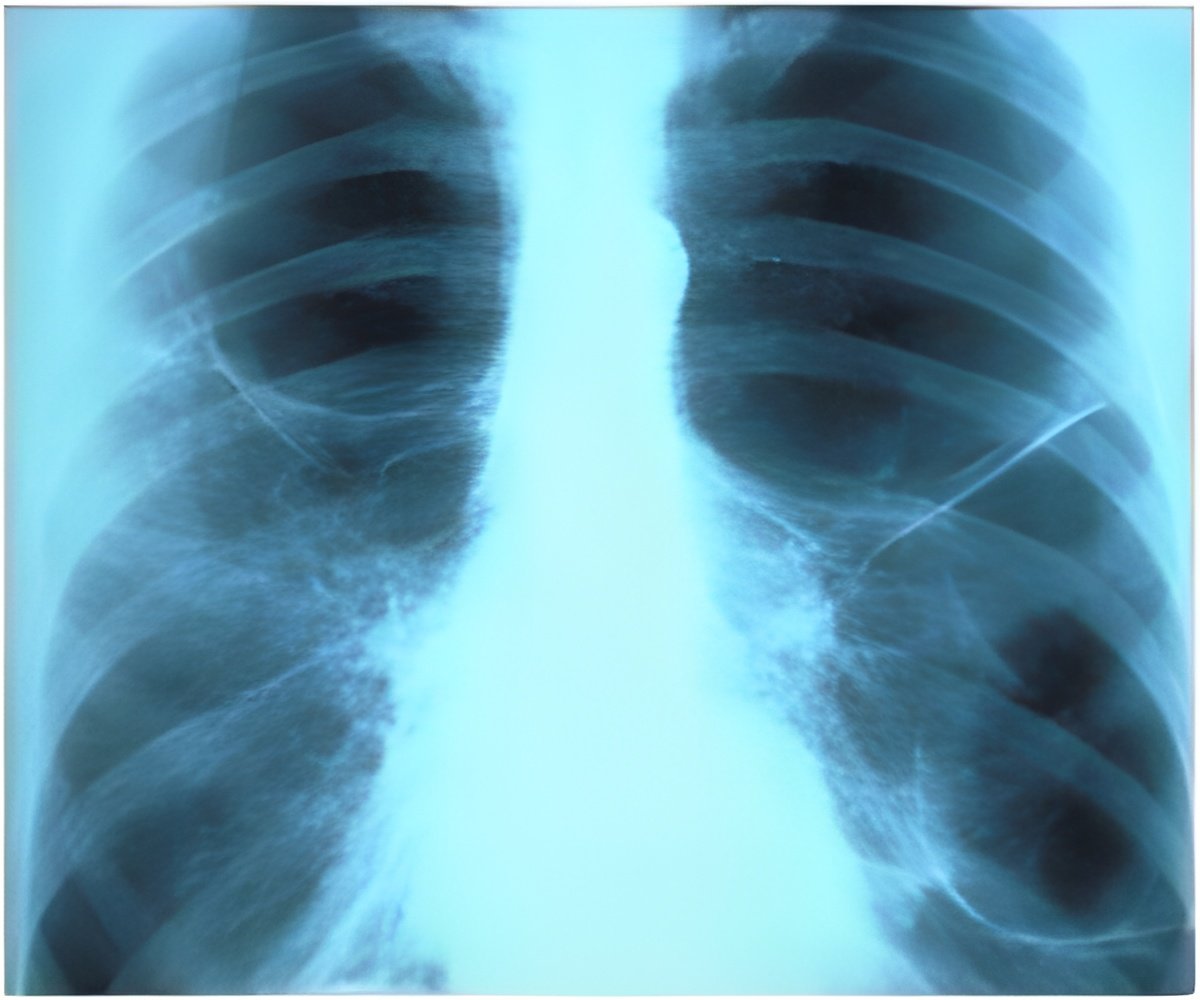Under-nutrition is the stark reality of 90 percent of pulmonary TB cases in India, or more than 1 million patients.

‘When a family's bread earner falls sick with TB, the family loses an average 83 days worth of wages, according to this 1999 study that is still considered relevant.’





Undernutrition increases the severity of TB, reduces patients' speed of recovery, and increases their chances of suffering side effects from the medicine, and the likelihood of their becoming one of the 480,000 Indian lives that TB, an infectious airborne disease, claims every year. When Puni, a tribal from Bhaisasingh village in Sirohi district, came into the mobile clinic, she weighed 20 kg, and had a Body Mass Index (BMI) of 9.9 kg/m2, a level that is "incompatible with life", said Anurag Bhargava, professor in the Department of Medicine, Yenepoya Medical College, Mangalore, who coordinated with nutritional experts in drafting the new guidelines. The desirable BMI level is 18.5 kg/m2, the ideal 21 kg/m2.
A sputum test confirmed that her body-racked by fever and a persistent cough, other classic symptoms of TB-was indeed being consumed by mycobacterium tuberculosis.
Over the six months following this October 2016 diagnosis, Jayantilal, a health worker living and working in Puni's village, personally dispensed every dose of the prescribed TB medicines freely available under the Indian government's Revised National TB Control Programme (RNTCP), and doled out six kilograms each of roasted soy bean and gram, under a nutrition-support initiative for TB patients by the same charity that Dave works for.
Prior to the development of anti-TB drugs in the middle of the 20th century, good food, open air, a dry climate and rest constituted the main treatment for TB, and those who could afford it would retreat to sanatoriums.
Advertisement
In a landmark study conducted in Madras (now Chennai) in 1959, the success of TB treatment was evaluated on the basis of whether the drugs cleared sputum of the TB bacteria; the finding that participants treated in sanatoriums or hospitals gained twice as much weight as those treated at home went largely unnoticed, even though food insecurity was seen to be an impediment to patients' completing treatment.
Advertisement
TB and under-nutrition have a two-way causal association. Being underweight is both a cause and a consequence of TB.
At the time of diagnosis, the median weight and BMI of a male patient were 42.1 kg and 16 kg/m2, in Bhargava's 2013 study in rural India. The female patients were worse off; their median weight and BMI were 34.1 kg and 15 kg/m2. Some patients had a BMI as low as 10 kg/m2, like Puni in Rajasthan. (The desirable BMI level is 18.5 kg/m2, the ideal 21 kg/m2.)
That 52 percent of the patients had stunting -- low height-for-age -- showed that their undernutrition status was chronic, said Bhargava, co-author of the study. Every unit reduction in the BMI increases the risk of TB by about 14 per cent, according to this an International Journal of Epidemiology study.
Developing TB also compounds undernutrition and weight loss. First, the disease reduces appetite and hence dietary intake. Second, the fever increases the basal metabolic rate-the rate at which calories are expended, and finally, TB causes a breakdown of protein and muscle, leading to wasting-low weight-for-height.
Further, under-nutrition continues to challenge patients both while treatment and after.
It can delay recovery as measured by the time taken for a patient's sputum to test negative, and severely undernourished patients are between two and four times more likely to die than adequately nourished patients.
A BMI of less than 17 kg/m2 has been associated with a five-fold risk of drug induced hepatotoxicity, or liver abnormality, a potential side effect of the TB therapy, according to this 2014 study in the International Journal of Tuberculosis and Lung Disease.
After the completion of treatment, under-nutrition increases the chances of a relapse and compromises physical activity due to poor muscle strength. Indian TB elimination plan proposes cash transfer for nutrition
When a family's bread earner falls sick with TB, the family loses an average 83 days worth of wages, according to this 1999 study that is still considered relevant, said Bhargava. This loss of income further compromises the family's food security, increasing the patient's immediate relatives' risk of contracting TB.
The new nutrition guideline recommends doubling the Public Distribution System ration-a government welfare programme for providing food to families living below the poverty line-for twelve months for families with one member suffering from TB, for the six months of the treatment, and six months thereafter. A TB patient additionally needs about 30-40 grams per day of protein from high quality sources like pulses, oilseeds, dried milk powder or groundnuts, the guidelines said.
However, the Health Ministry has ruled out distributing special food rations or nutritional supplements to TB patients as part India's TB control programme as it is "beyond the scope of the Health Ministry", Sunil Khaparde, deputy director general for TB control in the Directorate General of Health Services, told IndiaSpend. "Instead, we are planning to provide financial support to TB patients to help compensate the catastrophic expenditure they incur on care. But this is subject to funds being made available," Khaparde said.
In March 2017, the National Strategic Plan for Elimination of TB, a programme to be implemented between 2017 to 2025, proposed a Rs 2,000 direct benefit transfer for patients' nutritional support during the course of treatment, and a monthly support of Rs 500 to incentivise treatment completion, IndiaSpend reported in March 2017.
The program envisages spending Rs 3,600 crore in the next three years on nutritional support for patients alone, which is more than the Rs 3,323 crore the entire TB programme received in the last three years put together.(In arrangement with IndiaSpend.org, a data-driven, non-profit, public interest journalism platform. (Charu Bahri is a freelance writer and editor based in Mount Abu, Rajasthan. The views expressed are those of IndiaSpend. Feedback at [email protected])
Source-IANS















